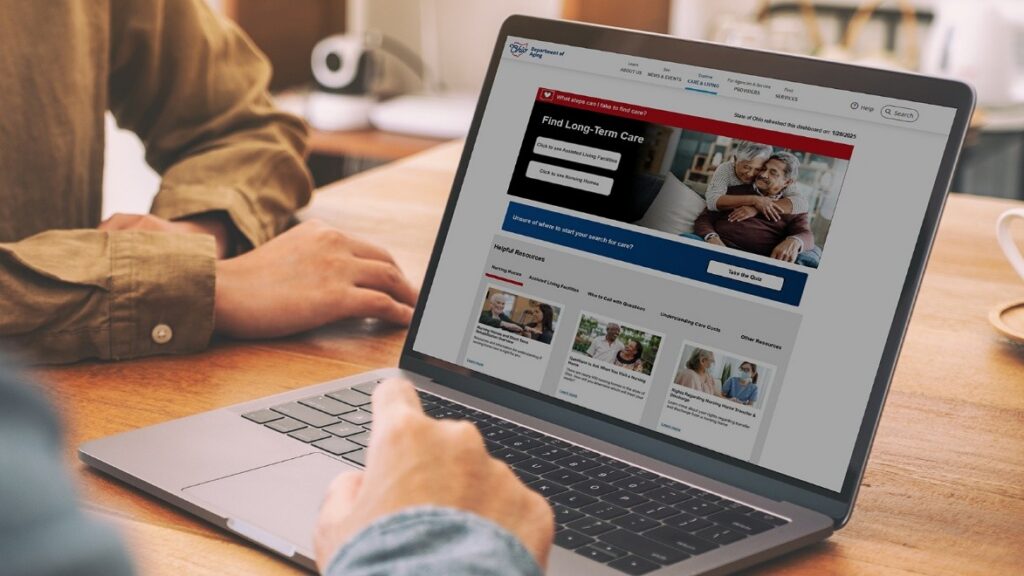November is Diabetes Awareness Month, an important opportunity to prioritize support and education for older adults. More than 90% of older adults with diabetes have Type 2 diabetes and many report having had diabetes for more than 10 years. On the other hand, 20% of those older than age 80 report a duration of diabetes of less than five years. Regardless of how long they have had the diagnosis, older adults with diabetes and their families can benefit from learning more about advancements in quality diabetes management.
This is because unfortunately, when diabetes is not properly managed, older adults are at higher risk of complications like hypoglycemia, kidney failure and heart disease, compared to younger adults living with diabetes. Therefore, it is crucial to address the need for quality diabetes care using a diabetes team management approach that includes a certified diabetes care and education specialist (CDCES).
CDCESs are trained healthcare providers who deliver specialized care and education to people with diabetes. One role of the CDCES is to provide diabetes self-management education (DSME) on various topics including individualized dietary guidance and education on appropriate use of medical devices such as continuous glucose monitoring (CGM).
CGM plays a crucial role in the management of diabetes. CGM devices consist of a flexible thin sensor inserted under the skin to measure glucose continuously and send readings to an external device (smartphone or specialized reader). When education is added to CGM use, the benefits of having both treatment options increase.
Working with a registered dietitian nutritionist can help older adults with diabetes create an individualized eating plan.
While monitoring devices, medications and exercise are critical aspects of DSME for older adults, nutrition also is an important factor, including in the management of diabetes-related complications such as diabetic foot ulcers. Older adults may under-consume protein and fiber-rich foods in favor of carbohydrates due to changes in taste, smell, appetite and/or emotional well-being. Maintaining a healthy weight (including adequate muscle mass) is important for glycemic control and cardiovascular health as muscle promotes insulin sensitivity.
When compared to those without diabetes, older adults with diabetes may have a two-fold greater loss in lean body mass over time. Additional muscle mass loss can occur during weight loss if appropriate nutrition and physical activity is not ensured. Therefore, balancing the right proportion of carbohydrates, proteins, fats and fiber from food is important in older adults with diabetes (see Table, below).
Table: Nutrient Considerations for Supporting Glycemic Control
|
Nutrient |
Glycemic-control functions |
|
Carbohydrates |
Macronutrient readily broken down to glucose when digested; higher proportion of complex carbohydrates that are slowly digestible may reduce blood glucose spikes after meals |
|
Protein |
Macronutrient important for muscle health; protein foods slow gastric emptying as well as influence appetite and insulin secretion |
|
Fats |
Foods with higher proportion of mono- and polyunsaturated fats may influence appetite and insulin secretion |
|
Fiber |
Viscous fibers found in wheat, oats, fruits and vegetables can reduce blood glucose after meals and cholesterol metabolism; fermentable fibers support gastrointestinal and immune function |
The American Diabetes Association highlighted in its consensus report that there is no single eating plan for managing diabetes and “research provides clarity on many food choices and eating patterns that can help people achieve health goals and quality of life.” Working with a registered dietitian nutritionist (RDN) can help older adults with diabetes create an individualized eating plan to ensure proper amounts of carbohydrates, fats and proteins in their diet to support healthy aging and glycemic control.
Research Suggests Oral Nutrition Supplements for Diabetes and CGM Can Improve Glycemic Control
Diabetes-specific oral nutrition supplements (ONS) can provide slow-release carbohydrates, fiber, protein, fats, antioxidants, vitamins, and minerals. For people with diabetes, use of a diabetes-specific formula over a standard formula is associated with better glucose management and lipid metabolism. These may be an option as a meal replacement and/or snack between meals and are included in treatment recommendations for people with diabetes and obesity.
A study was conducted in adults (average age 62) with Type 2 diabetes who followed a self-selected diet or replaced breakfast and snack (afternoon or pre-bed) with diabetes-specific ONS. Blood glucose was measured by CGM throughout the study. Researchers found replacing a usual breakfast and snack with diabetes-specific ONS was associated with a 50%-52% relative decrease of postprandial blood glucose after breakfast, while self-selected diet showed a 27% relative decrease when compared to pre-intervention. Researchers concluded that use of diabetes-specific ONS as a dietary approach with CGMs may provide valuable insight for both patients and healthcare providers to manage blood sugar in people with Type 2 diabetes.
Another study with CGM demonstrated that people with Type 2 diabetes with uncontrolled glucose on non-insulin medications showed improvements in glucose when they used intermittently scanned CGM (isCGM) and received DSME, rather than receiving DSME alone. Appropriate CGM use, along with continuous education from a CDCES may improve diabetes outcomes. Another study showed that initiating CGM can reduce hospitalizations in people ages 65 and older who have Type 2 diabetes and are on intensive insulin therapy.
Diabetes Awareness Month is a great time to encourage older adults with diabetes to speak with their healthcare provider about enrolling in a DSME program and working with CDCESs and RDNs to improve their blood glucose control. Check out these links to find a local CDCES or RDN.
Resources
- The American Diabetes Association’s (ADA) comprehensive Nutrition Therapy Consensus Report provides guidance for healthcare professionals about individualizing nutrition therapy for adults with prediabetes or diabetes.
- The ADA CGM infographic explains various types of CGMs and their use.
- The Nutrition and Diabetes Toolkit provides nutrition tips and meal planning for people with diabetes.
- The impact of nutrition and CGM monitoring webinar reviews the practical application of integrating CGM and nutrition intervention for optimal glycemic management.
Carley Rusch, PhD, RDN, LDN is a medical science liaison for the Nutrition division of Abbott, located in Columbus, Ohio. Anniece Spencer, DNP, FNP-C, BC-ADM, is a medical science liaison for the Diabetes Care division of Abbott, located in Alameda, California.
Photo credit: Shutterstock/Africa Studio












